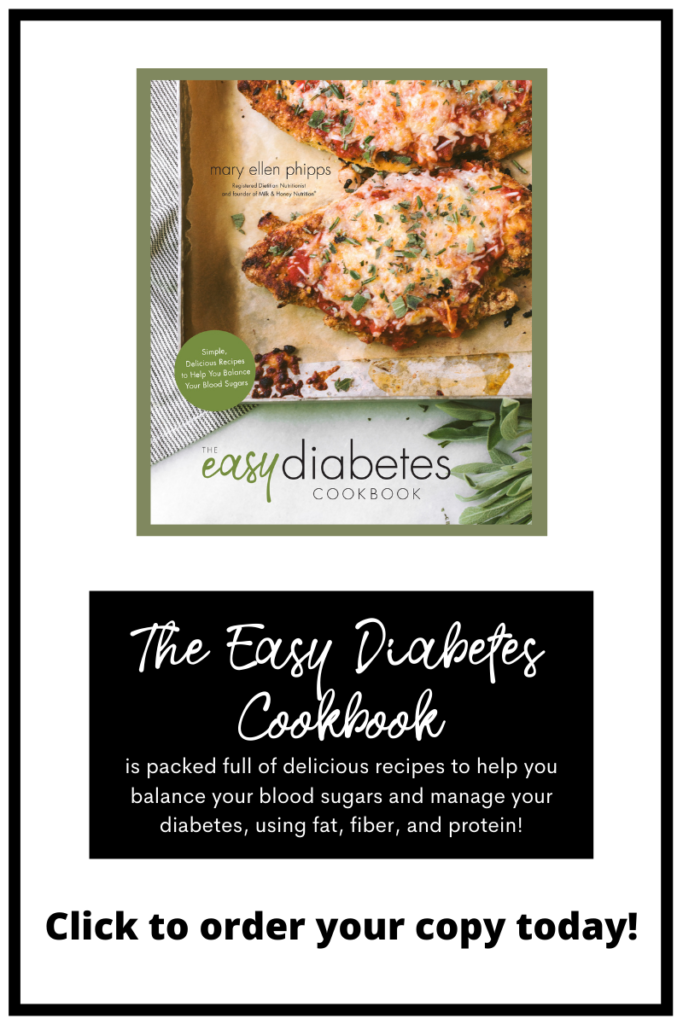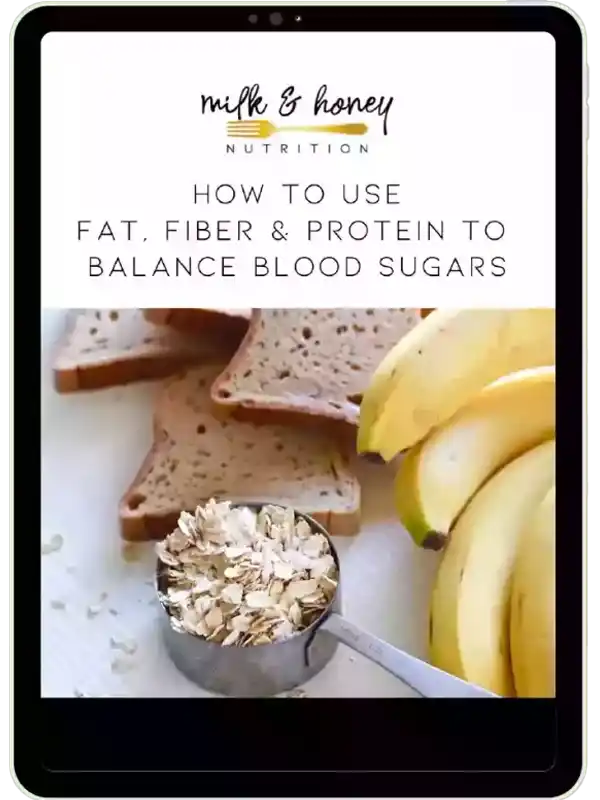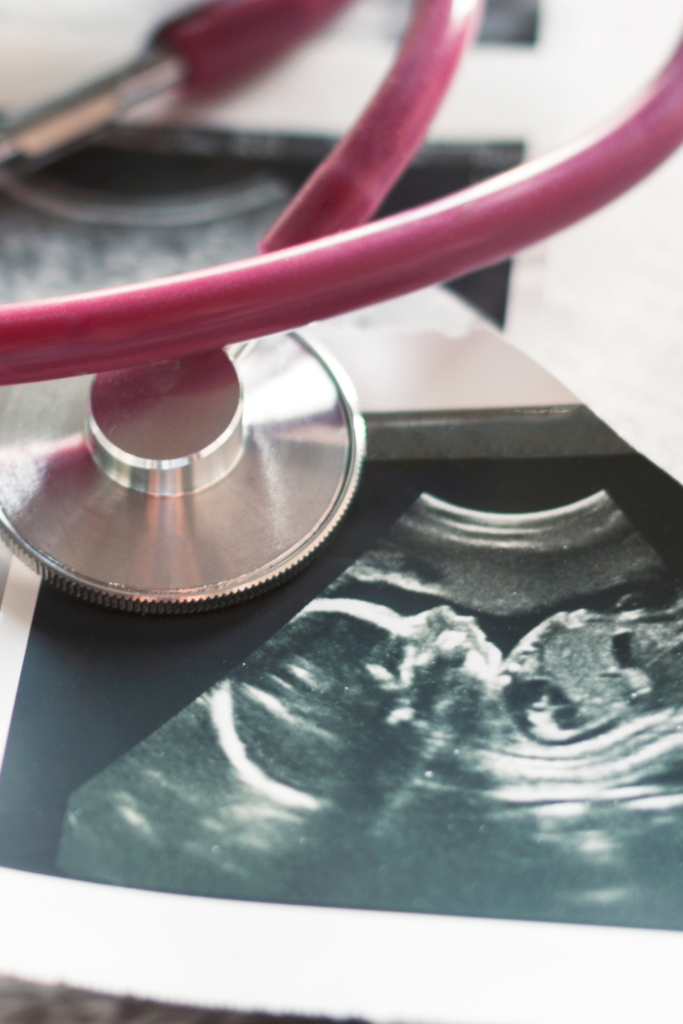
Type 1 diabetes and pregnancy is a unique experience and it’s important to be prepared and educate yourself about what to expect over the next 9 months and beyond.
Pregnancy is such an exciting time, but it can be quite scary for women with type 1 diabetes. Let’s discuss some important things to be aware of and frequently asked questions about type 1 diabetes and pregnancy.
Can someone with type 1 diabetes have a baby?
Yes! And, yes again! It is absolutely possible to have a healthy pregnancy and a healthy baby while living with type 1 diabetes.
Yes, there are certain extra risks that come with type 1 diabetes and pregnancy. But, it is absolutely possible!
But, before we go any further, I want to be very clear that a lot of what I’m going to share in this post is my PERSONAL experiences. I don’t want you to mistake that for something equivalent to what your doctor tells you to do.
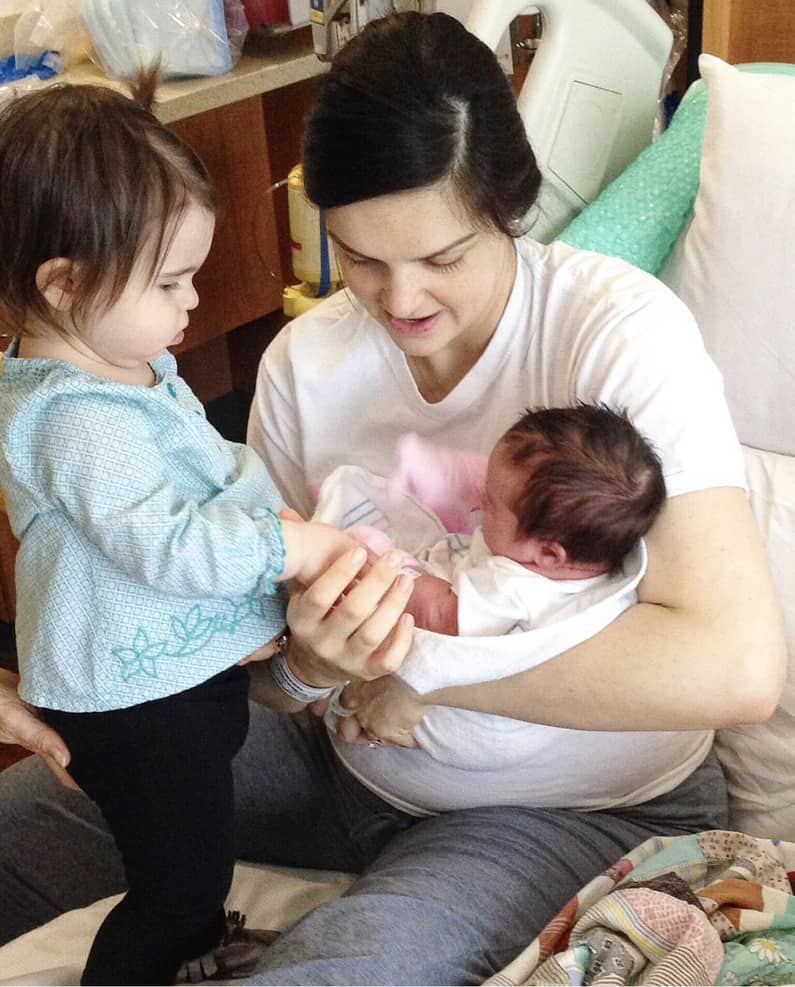
How does type 1 diabetes affect pregnancy?
I know many women find it helpful to read about the pregnancy experiences of other women with type 1 diabetes. That is part of my intent with this post. I’ve also asked some of my favorite registered dietitians and diabetes experts for their thoughts as well! We’ll cover how type 1 diabetes impacts pregnancy and what you can do to prepare.
***This article is not intended to provide medical advice, diagnosis, opinion, treatment or services. This article and the links contained in it provide general information for educational purposes only. The information provided in this article is not a substitute for medical care. It should not be used in place of the advice of your physician or registered dietitian.***
Type 1 diabetes pregnancy statistics
About 10% of all pregnancies are impacted by diabetes in some form, primarily pre-existing type 1 or type 2, or gestational diabetes that develops during the pregnancy. 0.2%-0.5% of these pregnancies are women with pre-existing type 1 diabetes.
When HgbA1c levels remain under 6.5%, pregnancy complication risks are similar to the general population. When blood sugars and a1c run higher though, there is an increased risk of complications for both mother and baby.

Good questions to ask your doctor about type 1 diabetes and pregnancy
I think any pregnant woman, whether she has diabetes or not, will tell you there are a million questions that can come to mind and that they want to ask their doctor. So, before you head to your OB appointment, keep a list of your questions. This way you don’t forget what you want to ask.
Casey Seiden, MS, RD, CDCES is a registered dietitian and certified diabetes care and education specialist, and a well known expert on diabetes and pregnancy…
Casey says, “Type 1 diabetes is a condition you may have managed on “auto-pilot” since you were a child or young adult, but pregnancy is a whole new phase of life. It brings up management issues you may never have had to think of before! Whether you are planning to become pregnant or newly pregnant, you will want to discuss some aspects of your diabetes care with your doctor. Questions you may want to consider asking are:
- Are my blood sugar goals the same in pregnancy or do they need to be adjusted?
- Will I need to undergo additional blood work, testing, or scans compared to a pregnant person without diabetes?
- How can I expect my insulin needs to change?
- Can I continue wearing my CGM (if applicable) or do I need to be doing more fingerstick monitoring?
How to prepare for type 1 diabetes and pregnancy
I chatted with Lemma Brown, a Registered Dietitian, mother, and person living with Type 1 Diabetes about her recommendations and experiences with type 1 diabetes and pregnancy:
“I think feeling pretty confident in your management of your Type 1 Diabetes day to day is a great way to prepare for pregnancy. It is important to not feel like you constantly ride a rollercoaster with your blood sugars.
Pregnancy can really throw a wrench or several wrenches into your general management of Type 1 Diabetes. Feeling pretty dialed in with your management beforehand can make your experience much smoother and better equip you for what is to come.
You may want to work with a Dietitian or Certified Diabetes Educator during your pregnancy planning to help you feel more confident and controlled before starting your pregnancy journey.
Other ways to prepare for pregnancy with Type 1 Diabetes could be asking other women in your life with Type 1 Diabetes who have been through pregnancy about their experiences. You can also join some community support groups on Facebook. Research other Type 1 Diabetes mothers on social media and learn about their journeys with pregnancy. It can be helpful to learn from others to have a sense of what your journey could be like beforehand.”
If you’d like to connect with Lemma, make sure to find her on Instagram!
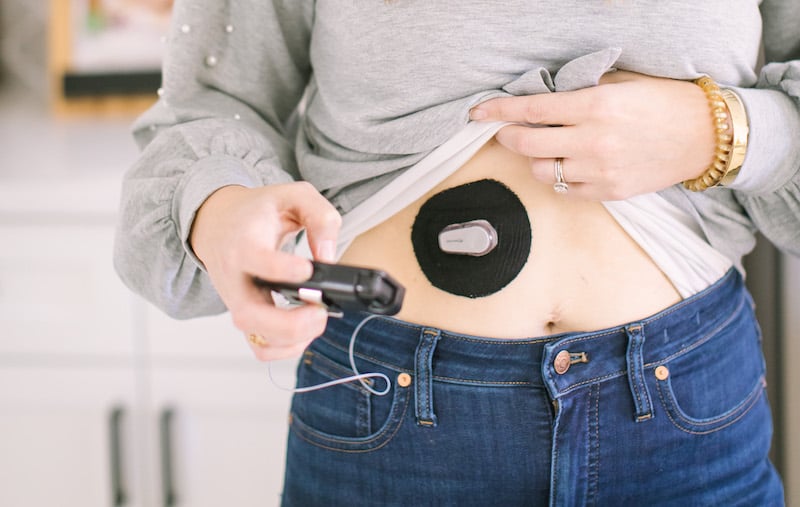
Type 1 diabetes and pregnancy risks
Marina Chaparro, RDN,CDE, MPH is a Registered Dietitian & Certified Diabetes Educator and the author of Diabetes & Pregnancy: A real guide for women with Type 1, Type 2 and Gestational Diabetes. I was thrilled to get to talk to her about type 1 diabetes and pregnancy.
“Without a doubt, having type 1 diabetes and being pregnant is challenging, and it comes with its risks. The main one is the risk of neonatal complications (or risk to the baby) if your diabetes management is not optimal. The first trimester is really the most critical for the baby’s development- this is when your baby’s spinal cord, heart, and other organs are formed, which goes back to the pre-planning stage.
Making sure your numbers are on target and having an A1C as close to or lower than 6.5% can decrease the risk of any complications. Other risks include pre-term labor, C-section, hypoglycemia unawareness (especially during the first trimester), the risk for retinopathy, and macrosomia (aka, having a larger than average size baby).”
Some general type 1 diabetes pregnancy guidelines for nutrition
Marina also chatted with me about nutrition recommendations for type 1 diabetes and pregnancy and how they differ from gestational diabetes recommendations…
“The most notable difference is the need for precise carb counting and insulin adjustments in type 1 vs. gestational diabetes. 70-80% of the time, women with gestational diabetes can be managed with lifestyle and nutrition. Whereas with type 1 diabetes, your body does not produce insulin, and your insulin needs triple by the end of your pregnancy. “
Marina also offers these tips:
- When eating, start with veggies first, followed by carbs
- Prebolus: give insulin 15 minutes before meals
- Choose slow carbs that are high fiber
- Avoid over-treating lows
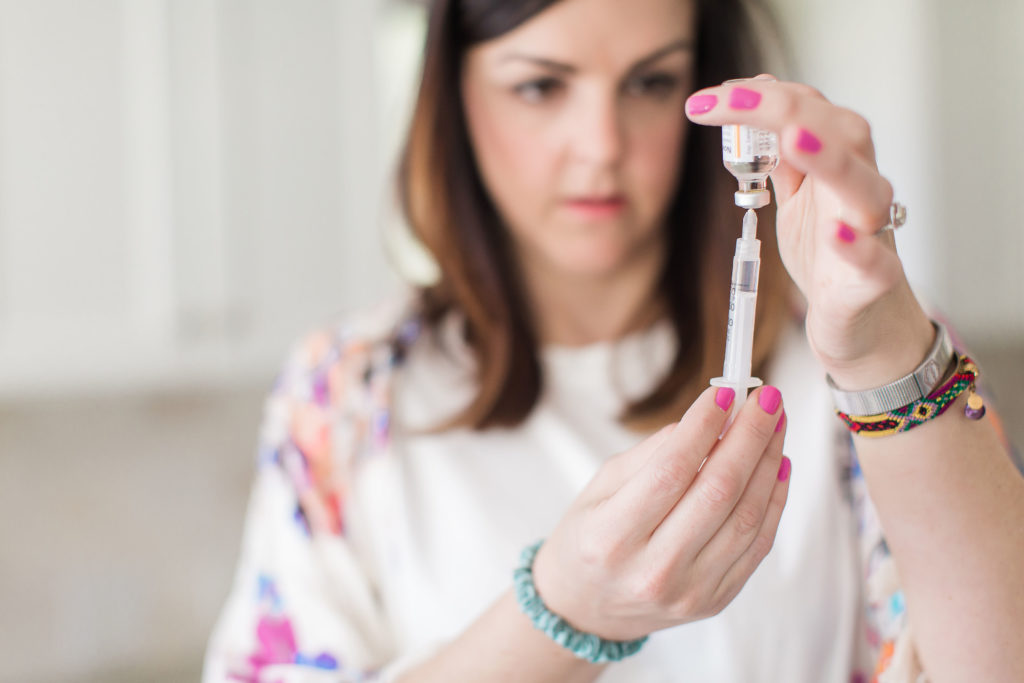
What are type 1 diabetes pregnancy symptoms that women without diabetes don’t experience?
As with any area of diabetes management, there are side effects or symptoms we can measure and quantify, and then there are side effects we can’t really measure. Some symptoms moms with type 1 diabetes might notice include:
- Increased anxiety related to blood sugar management and the impact on the growing baby
- Insulin resistance
- Increased swelling and edema
- Large gestational size for baby
When do women with type 1 diabetes give birth?
This is a very personal event and decision. You will decide this over the course of your pregnancy with input from both your OB and endocrinologist. Many OB’s like to recommend induction at 39 weeks. And, some are fine letting baby come when they are ready. Whether or not this is the right decision for you and your baby, remains up to you and your care team.

What do blood sugars do during labor?
Rahaf Albochi, RDN, LD, owner of Olive Tree Nutrition has some good insight on blood sugar control before, during and after labor. “For some women the stress of labor can increase blood sugars. Blood sugars will be monitored very closely during labor and delivery. Close monitoring can prevent hypo- or hyper- glycemia and risk for baby.“
What do blood sugars do after you give birth?
Rahaf says, “Blood sugars will go down and your insulin needs will decrease. The insulin resistance you may have experienced in the second and third trimesters is no longer there. Many women are able to return to their pre-pregnancy insulin requirements.“
Can women with type 1 diabetes breastfeed?
Women with type 1 diabetes can absolutely breastfeed! There are many health benefits for both mom and baby when breastfeeding. Breastfeeding does increase daily calorie needs dramatically though. This can have a big impact on blood sugars. As long as you are adequately nourishing your body, your blood sugar management should not be any more difficult than it was pre-pregnancy.

My breastfeeding experience with type 1 diabetes
This is a weird little thing I experienced while breastfeeding. My blood sugars weren’t all that difficult to manage, but when my blood sugars would be higher (for whatever reason), I would produce more milk! Like a lot more!
Back then, I did not have a CGM (continuous glucose monitor) so I didn’t have the luxury of seeing what my blood sugar was 24/7. BUT, I could always tell if my blood sugar was higher because I would produce more milk. It was so odd. Without fail, anytime I’d wake up in the morning and feel more full, sure enough my blood sugar was higher than normal. Now, I’ve never been able to find a research study that’s looked at this, but it is a weird quirk I noticed with both of my breastfeeding experiences! (And this is not a reason to let your blood sugars run higher by any means!)
My type 1 diabetes pregnancy stories
During both of my pregnancies, I experienced pretty much everything mentioned in this article: increased insulin resistance, swelling and edema, pre-eclampsia, big babies… AND most importantly… two very healthy and thriving little girls. I talk more about my entire experience in a video I made over on Instagram that highlights the ups and downs of my pregnancies. Make sure to check it out!
And if you’re looking for diabetes resources make sure to check out the latest addition to my website over in the Diabetes 101 section! You’ll find articles, tips, and recipes on all sorts of different diabetes topics!
